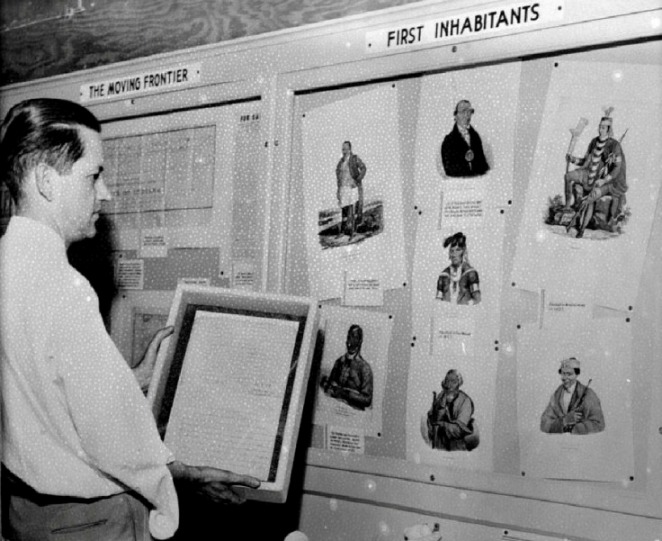
Purchase Tickets
Pondering the Impact of History Museums
April 20, 2018

In the Local History Services department, we get to work with historical organizations all across Indiana on everything from collections care training to traveling exhibits. And, we spend a lot of time thinking about why museums do what they do. What is the importance of museums to their communities? Are they integral to our society? Why collect and preserve history? While we, and the organizations we work with, go about our daily work, these questions are at the heart of our calling.
For most museums and history organizations, this starts with the mission and vision statements. These expressions of purpose, values and goals provide the core objectives around which the work of the museum is based. In history museum mission statements, you will find phrases like “fostering a deeper understanding of history,” “inspiring our communities” and “connecting the past to the future.” These statements underlie and influence decisions regarding programs, exhibits, collecting initiatives, fundraising, long-term planning and more.
To really get at a museum’s impact however, we try to go one step further to ask the “why?” questions. Why does it matter if we foster a deeper understanding of history, inspire communities and connect the past to the future? What greater purpose does this serve? These are hard questions to answer, and even harder to quantify, but they are worthy of contemplation.
The Local History Services department is part of the Field Services Alliance, a national affinity community of AASLH, and at our recent spring meeting, we began a larger discussion on this topic. With a facilitator, we started work on a Logic Model – a tool that helps organizations identify resources, activities, outputs, outcomes and impact. While still a work in progress, the Logic Model will help us to define and delve into the impacts of our Field Services work as well as the deeper impacts of museums.
The answers to the “why?” questions regarding the impact of history museums are complex and varied, but for me, they come down to community and society. Museums are the keepers of history and a central point where a community’s past, present and future intersect. History museums can help communities find common ground and foster connections and growth. They show us who we are as a culture, what made us what we are today, and where we are going tomorrow.
What is the importance of history museums to you? Has a museum had an impact in your life or your community? I’d love to hear your thoughts!









